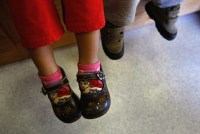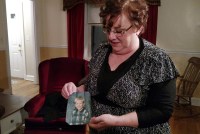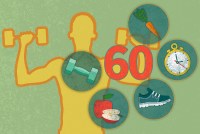Latest Morning Briefing Stories
Lawsuit Details How The Sackler Family Allegedly Built An OxyContin Fortune
WBUR and other media organizations sued Purdue Pharma to force the release of previously redacted information in a case brought by the Massachusetts attorney general.
Renuncian a servicios de autismo para su hija por miedo a no obtener la residencia
El posible cambio a una norma de inmigración está alejando a niños de servicios médicos que necesitan para su salud y desarrollo.
Must-Reads Of The Week From Brianna Labuskes
Newsletter editor Brianna Labuskes wades through hundreds of health articles from the week so you don’t have to.
Desesperados, renuncian a la custodia de sus hijos para que reciban atención mental
Muchos padres toman esta terrible decisión para que sus hijos puedan recibir costosos tratamientos psiquiátricos. Qué está fallando.
To Get Mental Health Help For A Child, Desperate Parents Relinquish Custody
To get care for their 12-year-old son’s severe mental illness, Toni and Jim Hoy had to give up custody of him and allow the state of Illinois to care for him. It happens to hundreds, perhaps thousands of children each year. The exact number is unknown because two-thirds of states do not keep track.
With Mom’s Green Card On The Line, Family Forgoes Autism Services For Citizen Child
A Texas girl needs autism treatment, but her immigrant mother is afraid of turning to Medicaid. As more U.S. children go without health coverage, advocates blame politics of intimidation.
Diez pasos para cambiar hábitos poco saludables después de los 60
¿Quién dijo que después de los 60 no podemos correr triatlones? ¿O hacer equilibrio sobre una sola pierna? ¿O escribir un libro?
Boot Camp After 60: 10 Steps To Turn Around Unhealthy Habits
Older men and women often struggle to find the motivation to embrace a healthy lifestyle. We talk to experts about how to make the changes and how to keep them.
Community Hospitals Link Arms With Prestigious Facilities To Raise Their Profiles
A growing number of community hospitals are forming alliances with some of the nation’s biggest and most prestigious institutions. But for prospective patients, it can be hard to assess what these relationships actually mean.
Must-Reads Of The Week From Brianna Labuskes
Newsletter editor Brianna Labuskes wades through hundreds of health articles from the week so you don’t have to.














